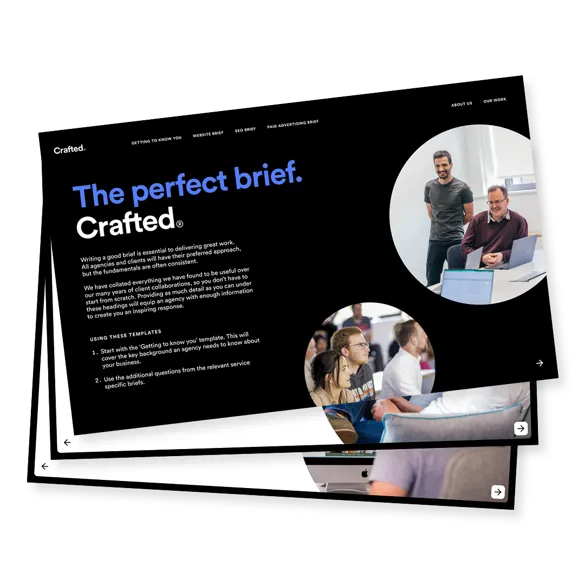Crafted labs - the perfect brief
Good results are built at the start.
Create better briefs with these templates.

The ultimate briefing guide.
All the right questions for the perfect brief in one handy document.






